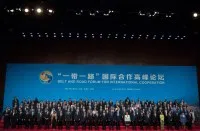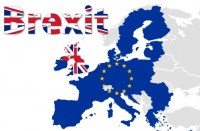Angela Merkel’s decision to unilaterally open Europe’s frontiers to a rag-tag mix of economic migrants, human traffickers, so-called refugees, actual refugees and terrorists has become predictably unpopular throughout Europe. In many respects, the open door policy that Merkel pushed on Europe as a whole is directly linked with the emergence of the new 5 Star/Lega Nord coalition in Italy which operates on the basis of strict opposition to “Merkelism”.
But while Merkel has defied the wishes of many if not most of her own citizens in respect of her migrant policies, her government has been negligent when it comes to monitoring racism and violence against legal German residents and in many cases German citizens of Turkish origin.
As West Germany became increasingly economically successful in the second half of the 20th century, Turkish migrants were invited by Bonn to work in the re-emergent economic powerhouse of Europe. The result has been that three million Turks now call Germany home. Successive generations of hard working and law abiding Turks have led to a birth of young German citizens with Turkish roots. Unlike the undocumented migrants of the 21st century, the legal Turkish immigrants to Germany have contributed and continue to contribute greatly to Germany and Europe as a whole.
One such person is Mesut Ozil, a star of Germany’s national football team with Turkish roots. Prior to this year’s World Cup, Ozil visited with Turkey’s President Erdogan in the same way that for example an Argentinian footballer playing in France might have an audience with the President of Argentina.
However, since German media and at times the German government has moved to portray the Turkish President as some sort of tyrant, in spite of the fact that Erdogan is far more democratically popular in his country than Merkel is in her country, Ozil was subsequently subjected to a torrent of both public and private racist abuse. Ozil’s case is not unique as racism against Turks in Germany continues to grow.
Ozil’s profile has, however allowed prominent international voices to shed light on Germany’s problem in ways that might ultimately be helpful in galvanising Turks to stand up for their rights and dignity as legal members of wider Germany society. After announcing his retirement from the German national team, Ozil met with Turkish Justice Minister Abdulhamit Gul. After the meeting, Gul Tweeted a photo of Ozil with President Erdogan with the caption:
“I congratulate Mesut Ozil, who left the German National Team and made the most beautiful goal against the virus of fascism. Let the path be clear [for Ozil]”.
Almanya Milli Takımı'ndan ayrılarak faşizm virüsüne karşı en güzel golünü atan Mesut Özil’i tebrik ediyorum. Yolun, bahtın açık olsun @MesutOzil1088 pic.twitter.com/abZSlAvzc5
— Abdulhamit Gül (@abdulhamitgul) July 22, 2018
For millions of Turks, the combination of a German government siding with Ankara’s terrorist enemies in northern Syria while doing little to police anti-Turkish racism at home - the word fascism is eerily apt in describing the atmosphere that many now face in Germany. Crucially, while outsiders from the wider Afro-Mediterranean world who have come illegally to Germany often get preferential treatment from the so-called “politically correct” German mainstream media, Turks who are legally living in Germany, in some cases for three generations, are not given anything approximating the same sense of sympathy.
Making matters worse, violent PKK inspired terrorist attacks against Turkish businesses and mosques in Germany has become more prominent in recent years while the terror group FETO is making Germany its second home in Europe alongside Albania.
Germany has many social problems in the 21st century, far more than Turkey which is moving to unite around a new political system that stresses full citizenship rights for all. By contrast, in Germany the combination of illegal migrants, the rise of the far-right, the pro-PKK Trotskyist far-left and the proliferation of violent anti-Turkish racism, mean that Germany has a great deal to answer for in the age of Merkel.



